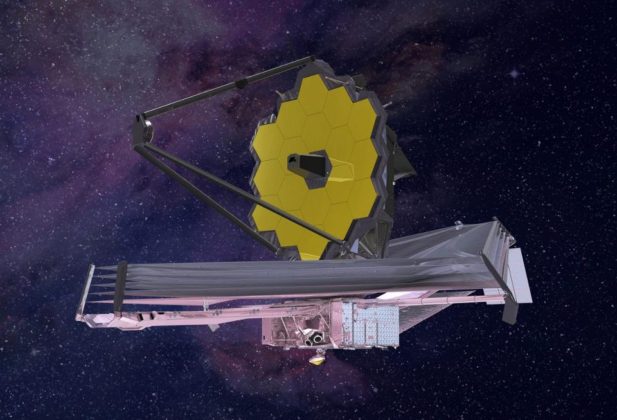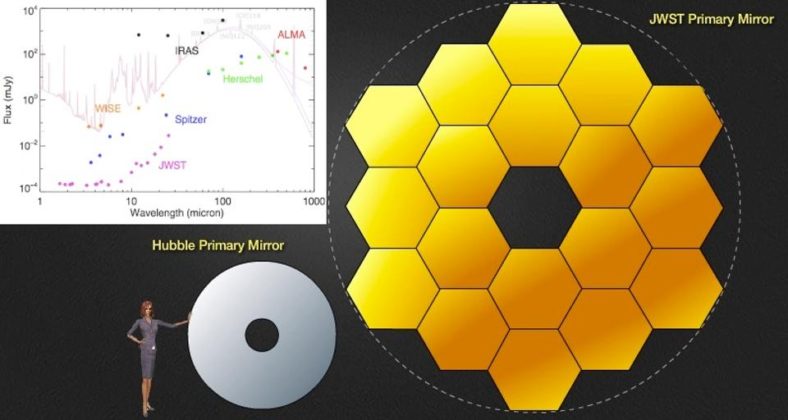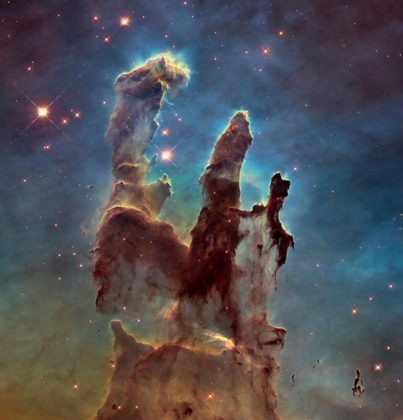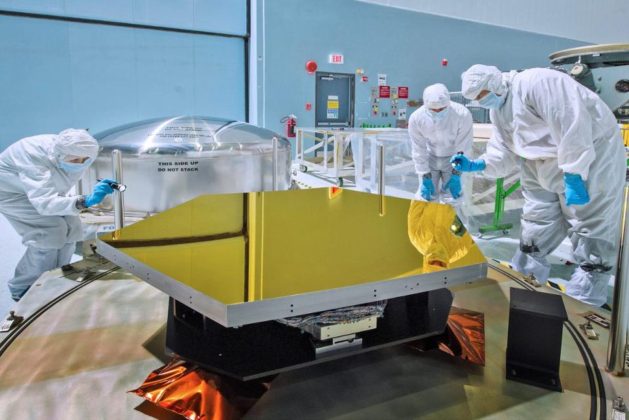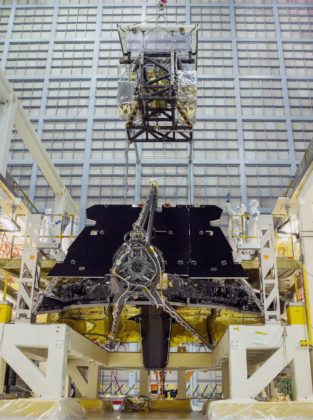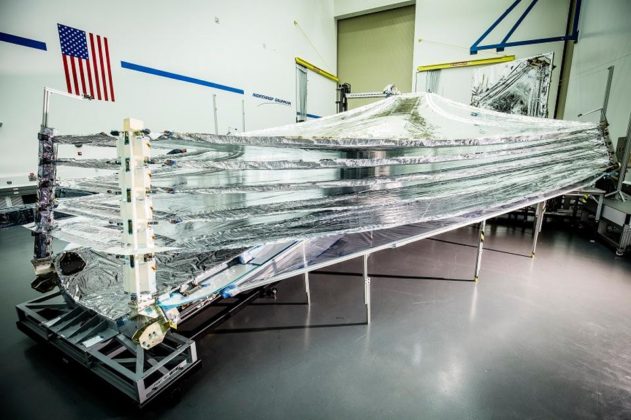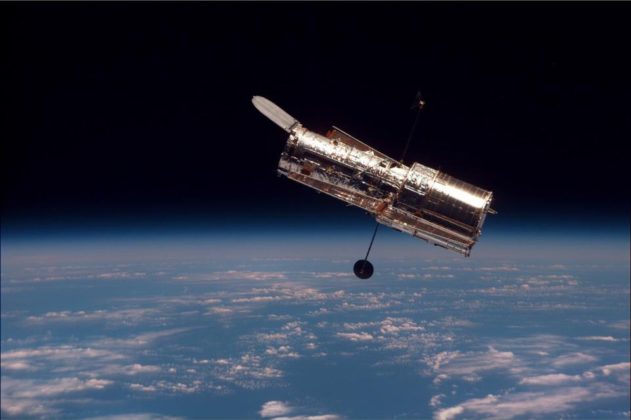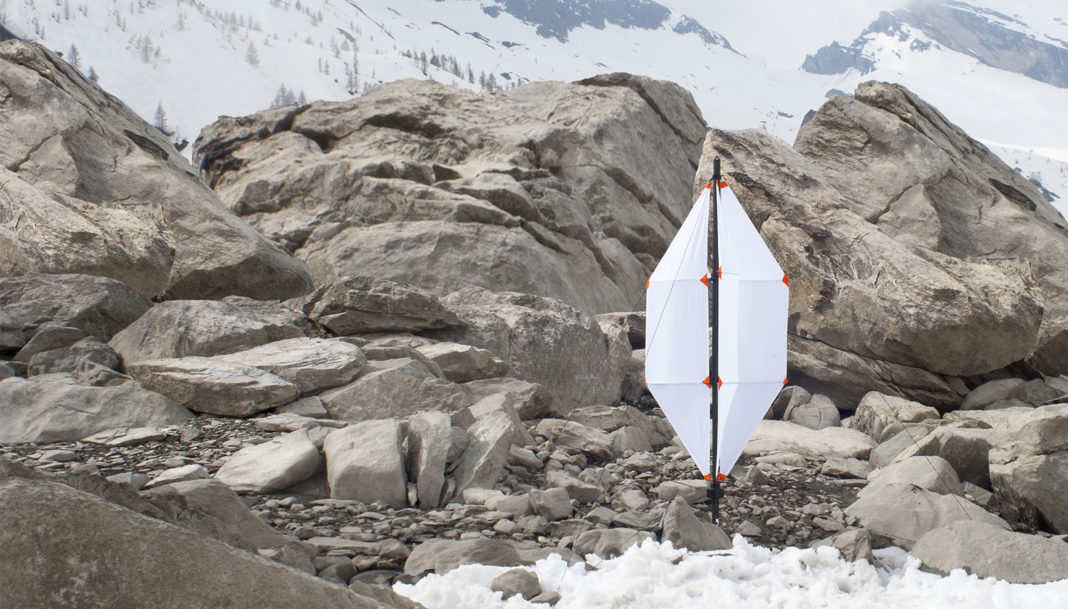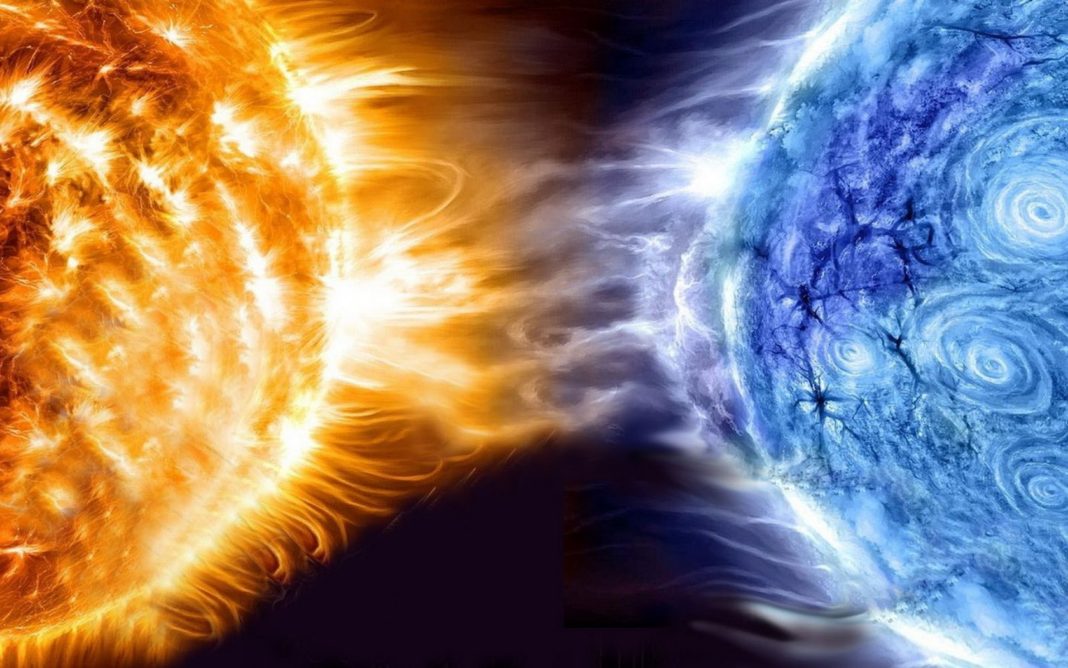For almost thirty years now the Hubble Space Telescope has been supplying us with images of the Universe and beyond in a way we never knew possible. It was the first of NASA’s observatories to show us how the Universe looks today and how it has evolved over billions of years. We discovered how galaxies used to look and found those that shaped the Universe as we know it today. However, there are still a few conundrums it just can’t get to the bottom of including: how far we need to explore to see the pre-stellar Universe; how stars from inside a dusty nebula; what the first ever stars and galaxies looked like; and what the atmospheres of Earth-like worlds are like and if they too contain remnants of life.
But, not to worry as NASA has been working on another brilliant piece of technology that will take us one step closer to uncovering all of these answers and more with the launch of the James Webb Telescope, hopefully in October next year. Compared to the Hubble, this new telescope will have seven timed the light-gathering power provided by 18 gold-coated mirror segments. The James Webb Telescope will be situated at the L2 Lagrange point so far away that there will be no chance of contamination that occurs at low-Earth orbit. It’s also been designed to enable work effectively without the need for any coolant.
Soon we will be able to view the farthest stars and galaxies like never before. Atmospheric contents of Earth-like planets around TRAPPIST-1 will suddenly become measurable and will give us insight into the formation of the earliest galaxies as well as our own. While Hubble gave us the opportunity to view the Universe, James Webb will enable us to learn how it came to be this way. It’s a huge leap in engineering and proves just what we can do with the right technology to hand.
More News To Read
- Personalized Medicine is Great for Treatment, but What About Prevention of Chronic Diseases
- What Good Does ‘Junk DNA’ Do?
- The UK Introduces New Autonomous Vehicle Insurance Laws, Who pays for damages?
- The World’s First Real Quantum Computing Battle, How is Ended?
- Should We Be Concerned Our Future Autonomous Car May Get Hacked?






